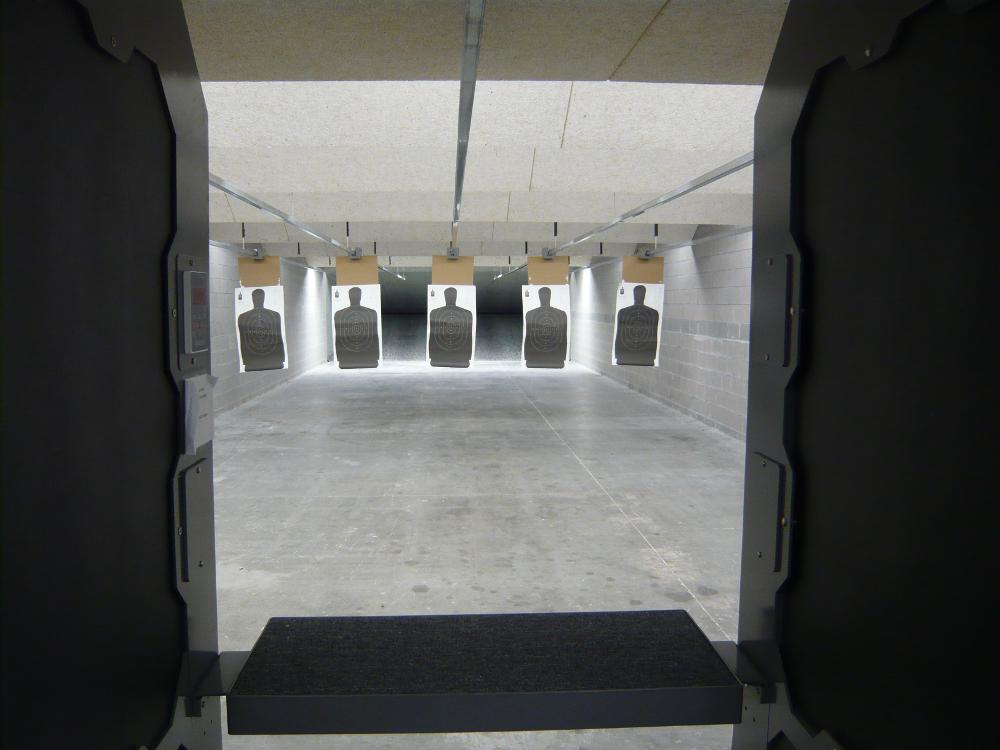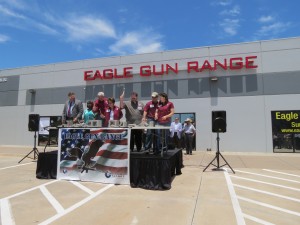 By Yunjiao Amy Li and Eric Ferkenhoff
By Yunjiao Amy Li and Eric Ferkenhoff
Headlines from Dallas and Chicago over the past few days seem to underscore that the debate over gun rights, following the Trayvon Martin killing, is far from settled.
In Dallas, there was this: A gun range in nearby Lewisville is prepping a program to host children’s parties for those as young as 8 to enjoy cake, ice cream and some shooting. It’s a very “Texas” thing to do, they say, and Eagle Gun Range is just an example of the state’s proud stance on gun rights.
According to Jame Kunke, the tourism director for city of Lewisville, a tiny town west of Dallas, locals have largely endorsed the opening of Eagle Gun Range.
“Maybe it’s because this is Texas, but the idea of gun ownership goes back a long time and there’s a high demand,” said Kunke, 45. “I’d let my 12-year-old daughter go to the birthday party if there’s proper adult supervision and there’s no reason for concern.”
Reactions from nearby cities were also of support.
“There are no rules for how old a kid has to be before he or she can shoot,” said John Ellison, director of support services for the neighboring Rowlett Police Department. “As a general rule, people here in Texas enjoy shooting so it’s a little different than other places.”
Places like Chicago – where there are no gun shops, it’s difficult to obtain a gun permit to have a weapon in your home and there is no allowance to carry one in public. Chicago is also a place where police and prosecutors have made targeting guns a top priority to beat back violence.
Consider that 480 people in Cook County, which covers Chicago, have been charged under a 2009 law designed to target gang members carrying guns. The law, which was pushed by the Cook County State's Attorney after a Chicago police officer was slain, adds a serious weapons offense to any other charge the suspect is facing from an incident.
And just this week, Illinois Gov. Pat Quinn signed a new anti-gang law that targets drugs, weapons and other offenses under RICO-like statutes that allow for more sweeping prosecutions and are frequently used in federal court to go after drug cartels and organized crime. The idea was to more easily get at a gang’s hierarchy instead of charging low-level drug and weapons dealers - who are often the younger members of a gang.
Chicago – where about 80 percent of homicides are gun-related – is facing a rising murder tally for 2012 despite a stretch that saw shootings decline in nine of the last 10 weeks. Chicago Police Supt. Garry McCarthy stressed the good numbers in a speech this week, saying the city is facing “a perception problem.”
But not all the news is good: After a weekend in which 53 shootings and nine murders were recorded, there were at least five shootings and one known homicide overnight Tuesday.
 To stem the violence, the city, which is heavily in debt, is expected to pay officers overtime to increase police presence on the streets although research is conflicting about the benefits of swarming streets with more officers. Some studies, including by the National Policy Institute, say long-term crime and cost benefits are negligible or even opposite expectations; other studies show more manpower can translate into reduced crime and cost savings for a city.
To stem the violence, the city, which is heavily in debt, is expected to pay officers overtime to increase police presence on the streets although research is conflicting about the benefits of swarming streets with more officers. Some studies, including by the National Policy Institute, say long-term crime and cost benefits are negligible or even opposite expectations; other studies show more manpower can translate into reduced crime and cost savings for a city.
For its part, Dallas saw a drop of 5.6 percent in overall reported crime through the end of February – but an 18.5 spike in violent crime compared with the same period last year.
The enforcement of gun laws, at least anecdotally, can vary widely from jurisdiction to jurisdiction, region to region – as can the cultural perception of gun ownership, said Roseanna Ander, executive director of The Crime Lab at the University of Chicago.
James Alan Fox, a criminologist at Northeastern University in Boston, agreed.
“The different opinions about guns has been longstanding and it’s very much alive,” he said. “The culture has been alive in the Southern states for a long time so I’m not surprised to hear about [Eagle Gun Range].”
There are also jurisdictional differences in terms of how courts treat gun cases. In some areas, the most minor gun offense is treated as a most serious crime; in others, possessing a weapon might draw less scrutiny than driving drunk, Ander said.
“Courts can inadvertently send the wrong message,” she said. “With crimes that are probabilistic, like drinking and driving, maybe you’re safe three, four, five times but that last time a family of four gets killed. The same can be with gun possession. You carry, carry and carry and that last time, maybe someone had too much to drink and a person is shot dead.”
Meanwhile, a recent study by Texas A&M found that murder and manslaughter rates have actually gone up in many of the 23 states that have stand-your-ground laws - the same defense claimed in the Trayvon Martin case. For their part, Martin's parents have argued before a panel reviewing Florida's version of the law that the defense should not be a justifiable reason for death when the person who delivers the fatal shot or blow actually initiates a confrontation.
A Houston jury agreed with that reasoning Wednesday regarding Texas' version of the law, finding a man who claimed the defense guilty and setting him up for a life sentence.
But as the gun debate gets new legs and figures into local state and federal elections, David Prince, owner of the Eagle Gun Range, said the key is education – something that is stressed heavily in pro-gun states.
“The children are shooting guns in video games,” he said. “By giving them proper education, it would take some mystery out of it and let them know that a gun is not a toy.”
Photos courtesy of Eagle Gun Range.
Good job!